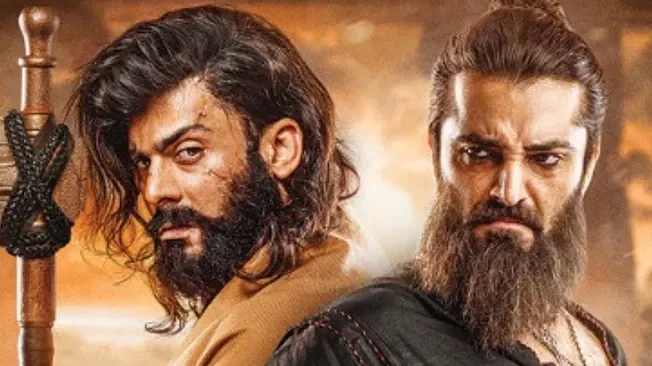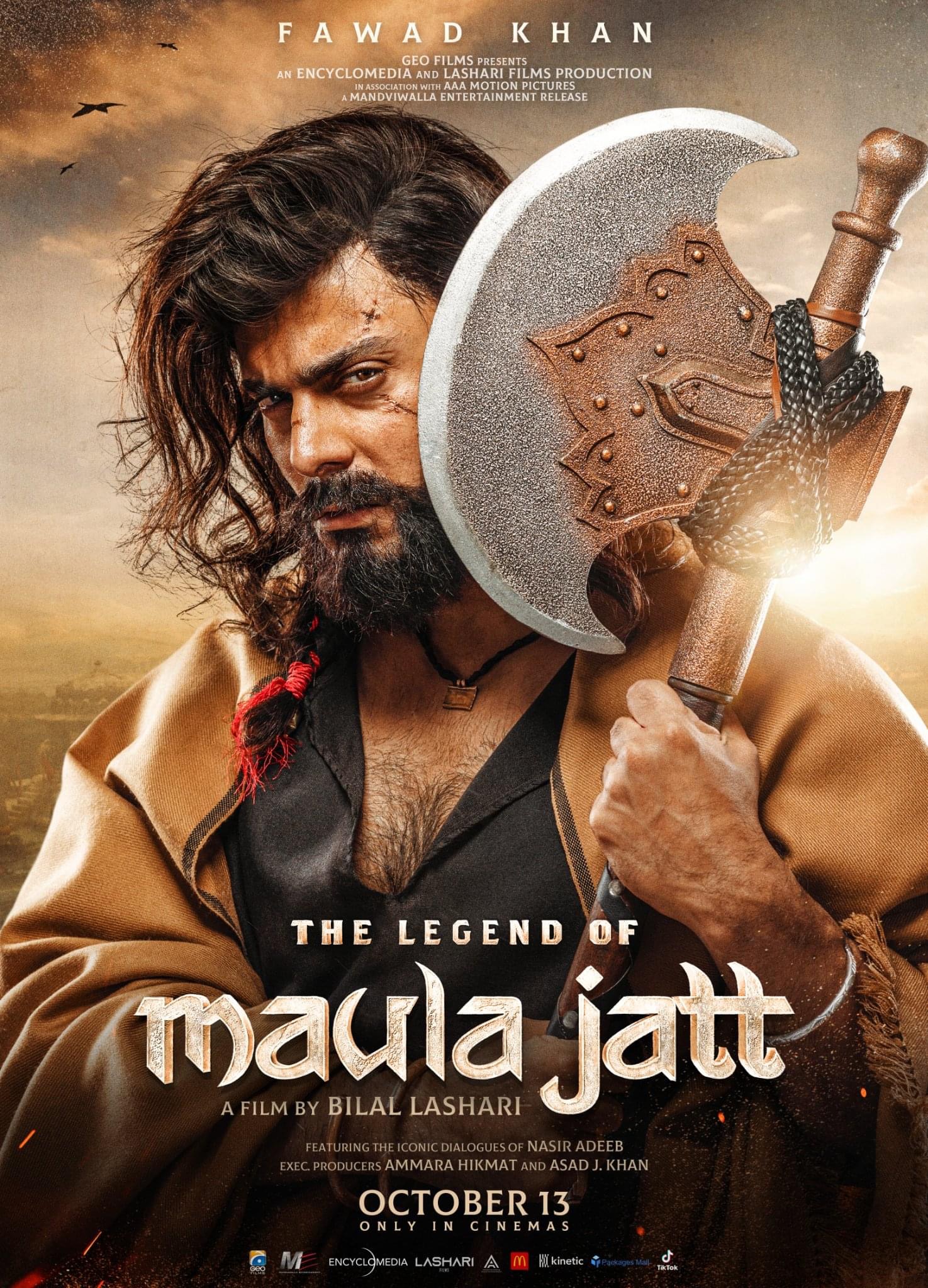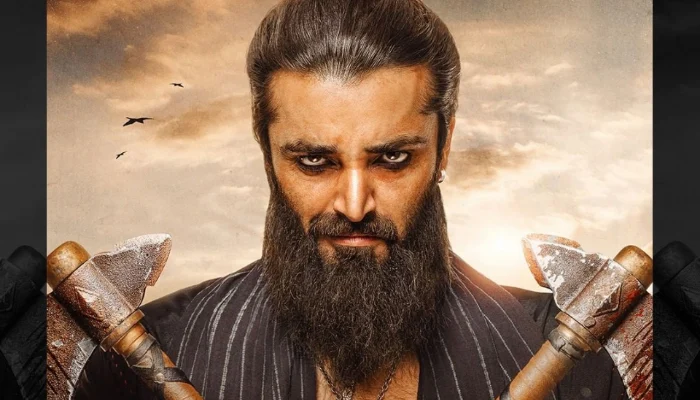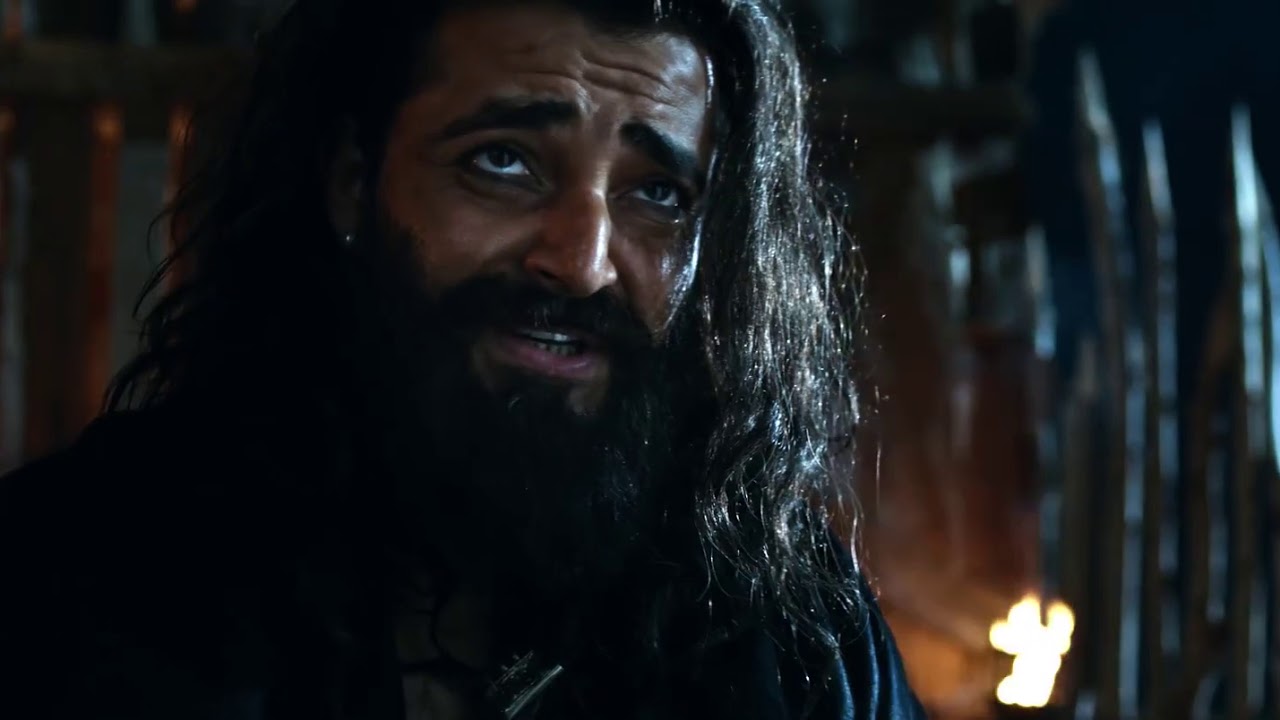They say you can’t be great consistently. You can’t reproduce magic, and lightning strikes only once. Blah blah blah. To all those who have been peddling these cliches, I’d tell them to remember that Pakistanis, just like when we play cricket, can produce the strangest, most unlikely of miracles in the most unlikely places. I’d tell them to step into the world of Pakistani cinema and television industry, where we produce magic and power with the stringiest of budgets on tv, and we establish wonderful heroes from very simple stories. We reproduce the magic of two of our most beloved superstars. We give cinema one of the greatest villains ever written – times ten. I’d tell them to watch The Legend of Maula Jatt and chart the sparks between Fawad Khan and Mahira Khan, and I’d tell them to drop everything and focus on Hamza Ali Abbasi as Noori Natt.

The Legend of Maula Jatt is set in a fictional time and space. The film borrows much of its core and dialog from the original story written by Nasir Adeeb and produced by Sarwar Bhatti, starring Sultan Rahi and Mustafa Qureshi. The 2022 version (which was supposed to be a 2020 version) of Maula Jatt’s story is a goth gorefest with some incredible performances. Fawad Khan, Pakistan’s much-loved star, makes an epic return to the screen, making all of us regret the days we couldn’t celebrate his sheer charisma and aura.
Fawad Khan stars as the eponymous Maula who is out for revenge. He’s a prized fighter with his trusty buddy/bro Mooda (Faris Shafi) doing his bidding and also there to provide some comic relief. Maula is no immediate hero, which is a clear sign of a shift from the original narrative.

The gandasa-wielding hero needs a setup in 2022, and while the first half lingers a bit too much on trying to put everything in place, the rest of the film sure makes up for its epic finale. Fawad Khan, a force as always, says more with his eyes than with his gandasa. And that’s the modern-day hero perhaps Lashari wanted to establish.
Bilal Lashari’s skill is in designing for scale and executing action sequences with a finesse never really seen before on the Pakistani cinematic landscape. Lashari’s attention to detail is almost methodical, chemical. He seems to have imbibed all the great action classics, from the spaghetti westerns to the Bourne series and then the obvious elements from Gladiator, Game of Thrones, and maybe even Ben Hur. Though the film has plenty of nods, homages, and inspirations from Tarantino (the gore, Daro’s entry is fairly reminiscent of a certain sequence in Kill Bill) to Scorsese, there are moments when it delves too deep into its narrative, losing its ability to stick to the narrative at hand: this is essentially about two rivals, Maula and Noori.
These are flaws limited to the first half, however. As the intermission rolls in, the stakes grow higher. Lashari’s modern and gothic take on the classic Punjabi lore of Maula Jatt lifts off at various points. It delivers in plenty of moments, sometimes with the kind of rare genius that hoity-toity armchair critics don’t expect from Pakistani filmmakers. But suppose you’ve known Pakistani cinema for a while. In that case, you’ve been following just how brilliantly some of our content creators can pull off certain stories. You won’t be surprised at the magnificence of the world that Lashari has created with what is simply painstaking detail.
But what is the story about, really? Is it just about a hero and a villain? Well. The original was just that. But Lashari tacks on a few more layers here and there. That’s probably why the back story gets tedious in the first half, especially with the parallel storylines with Maakha Natt, a fairly OTT maniacal villain played by Gohar Rasheed. Mooda and Makha’s stories criss-cross at odd times. But once the set-up is complete and once Noori Natt (Hamza Ali Abbasi) makes his entry, the film changes gears again and catapults its status to legend, thanks to Abbasi’s pitch-perfect depiction of Noori. His first appearance in the film is one of the finest scenes ever gracing the cinema. Period.

The gravelly voice, the menacing eyes, a deliciously evil smile, and a sociopathic but self-aware villain – what’s not to love? Abbasi pours all of his talent, Lashari’s narrative, and the authenticity of Mustafa Qureshi (who originally played Noori Natt) into the modern-day Noori Natt and makes it his own. There is not a single false note in Abbasi’s rendition. Whether it’s the action or the quiet narration, Hamza Ali Abbasi produces the kind of magic onscreen you will see if you are lucky enough to be witnessing this genius. Not that Hamza hasn’t always been a wonderfully talented actor. From his comedic roles in JPNA to his soulful ‘Afzal’ on the small screen and now to Noori, Hamza’s versatility knows no bounds. But with Noori Natt, he’s cemented his position as one of the finest actors today, globally. Like Fawad, it is hoped that Hamza continues to grace us with his talent and presence.

The rest of the star cast hold their own. Mahira Khan as Mukho shares her much-celebrated magical chemistry with Fawad Khan. Mukho and Maula sing love songs in the sky (Mahira Khan can sing better than most singers these days, who would have thought!) as the chorus brings the story to a climax. Humaima Malick, as the fiery Daro steals almost every scene (except whenever she is with Hamza Ali Abbasi, that’s just a sweet steal for both of them), she’s in. Raheela Agha, Shafqat Cheema, and Nayyer Ejaz, stalwarts of cinema and film, keep the momentum steady.
Does the much-awaited film live up to the hype? Yes. It does. Would it be better if it had been released back in 2020? For sure. What is the value for money you get in a film like this? Everything. This is a film that must be seen in cinemas, it’s a big-screen experience with larger-than-life personas that scream for them to be heard. The Legend of Maula Jatt is a grand cinematic experience, one that must be watched for all its worth. And most of all, for the worthy adversary, aka Noori Natt, without whom the legend would have possibly been merely a myth.

